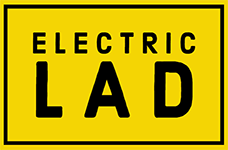
As I sit here contemplating the meaning of ethics and the concerns that come with artificial intelligence, my mind wanders to the many complex issues that arise in our modern world. Society is constantly evolving, with new ethical dilemmas arising daily. We are at a crossroads of sorts, where we must consider not only how our actions impact the world around us and the people in it, but also the actions of the machines we create.
Artificial Intelligence Ethics and Concerns:
One of the most pressing concerns of our time is the ethics of artificial intelligence (AI). As we continue to develop and improve the technology, we must consider the potential consequences that AI may have on our society. From autonomous drones to self-driving cars, AI has the potential to transform the entire world as we know it.
However, with great power comes great responsibility. We must carefully consider the potential risks associated with AI development and deployment. There is the fear that machines may eventually surpass human intelligence and become autonomous agents, leading to a world where humans are no longer in control.
Moreover, AI can also perpetuate societal biases and inequities. For example, facial recognition technology has been shown to have higher error rates when identifying individuals of color or those who do not conform to traditional gender norms. This can lead to significant harm and reinforce existing prejudices. There are also growing privacy concerns over the deployment of the technology.
To address these concerns, we must engage in ongoing discussions about AI ethics and ensure that technology is developed and deployed in a way that is sensitive to social and ethical considerations. We who work on Artificial Intelligence Ethics must also actively work to identify and address potential biases in AI systems and ensure that technology is designed to promote inclusivity and equity.

While the development of AI has the potential to revolutionize our world in many positive ways, we must be mindful of the ethical concerns associated with it and its overall societal impact. We must approach the development of AI with caution and ensure that we prioritize the well-being of our society over technological advancement. Only through careful consideration and collective action can we create a world that is both technologically advanced and ethically sound.
Top AI-related Ethical Concerns
- Bias and Discrimination: AI systems can inherit biases present in their training data, leading to discriminatory outcomes.
- Privacy: AI’s ability to process vast amounts of personal data raises privacy concerns.
- Transparency and Explainability: Many AI models, especially deep learning, are often seen as “black boxes,” making it hard to understand how they make decisions.
- Job Displacement: AI’s automation potential might lead to significant shifts in the job market, potentially displacing workers.
- Security Risks: AI systems can be vulnerable to attacks or be used in malicious ways, like deepfakes or autonomous weapons.
- Ethical Use of AI: Ensuring AI is used for socially beneficial purposes and not to harm individuals or communities.
- Accountability: Determining who is responsible for AI decisions, especially when they cause harm.
- Regulation and Control: Balancing innovation with regulations that ensure safe and ethical AI use.
- Social Impact: AI’s influence on social interactions, human behavior, and societal norms.
- Long-term Impact: Considerations about advanced AI’s potential future impact on humanity and ethical guidelines for its development.
